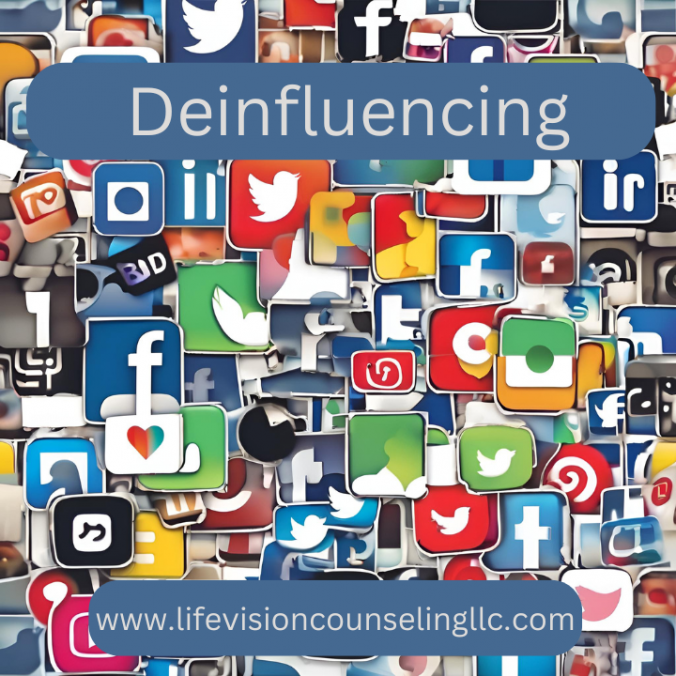Deinfluencing: Reclaiming Your Power
The digital age has amplified the voices of influencers, individuals who shape trends, opinions, and even our purchasing habits. From social media feeds to YouTube reviews, it feels like someone is always telling us what to buy, how to look, or who to be. While influencers can offer helpful insights or recommendations, the growing counter-movement of “deinfluencing” invites us to pause and reflect: “Do I need this? Is this truly aligned with my values?”
As a counselor, I see how subtle pressures can erode self-esteem and create a cycle of comparison, dissatisfaction, and impulsive behavior. Deinfluencing is more than a trend; it’s a tool for mental wellness. Let’s explore what this movement is and how it can benefit you.
What Is Deinfluencing?
Deinfluencing is a pushback against consumerism and the influence of popular opinion. It encourages critical thinking about the choices we make, especially when we feel external pressure to conform. Instead of persuading you to buy, try, or endorse something, deinfluencing advocates for slowing down, asking questions, and making decisions that genuinely serve you.
Why Does Deinfluencing Matter for Mental Health?
1. Reducing Comparison and Anxiety
Social media often creates a highlight reel of perfection that leads to feelings of inadequacy. Influencers, whether intentionally or not, can make us feel like we’re not enough unless we own a specific product or adopt a certain lifestyle. Deinfluencing challenges this narrative, reminding us that our worth isn’t tied to things or trends.
2. Cultivating Intentionality
Many of us buy into trends not because we need, like, or want them, but because we’ve been subtly convinced we should. Deinfluencing promotes mindful consumption—choosing what adds value to your life rather than what simply fills space.
3. Building Self-Trust
When we stop outsourcing decisions to others, we rebuild trust in ourselves. Deinfluencing asks us to tune into our own needs and preferences instead of looking outward for validation.
4. Saving Emotional and Financial Resources
Chasing the latest must-have item or lifestyle can drain not only our bank accounts but also our emotional energy. Saying no to unnecessary influence can help us set healthier boundaries around our time, money, and focus.
Practical Steps to Embrace Deinfluencing
1. Audit Your Social Media
Pay attention to who you follow and how their content makes you feel. If certain accounts leave you feeling inadequate or pressured, it might be time to unfollow or mute them.
2. Pause Before Purchasing
Before buying something, ask yourself:
– Why do I want this?
– Does it align with my values or goals?
– How will it truly benefit me?
3. Focus on Your Values
Instead of following trends, identify what genuinely matters to you. Whether it’s sustainability, minimalism, or simply saving money, let your values guide your decisions.
4. Seek Support
If you find yourself struggling with feelings of inadequacy or being overly influenced by external pressures, consider speaking with a counselor. Therapy can help you build self-esteem, set boundaries, and regain confidence in your decision-making.
Reclaiming Yourself
Deinfluencing isn’t about rejecting all advice or isolating yourself from the world. It’s about reclaiming your autonomy in a culture saturated with voices vying for your attention. When you learn to filter out the noise and focus on what truly matters, you not only make better decisions—you build a life that’s authentically yours.
If you’re ready to explore how deinfluencing and other self-awareness tools can improve your mental health, I’d love to help. Feel free to reach out to my practice to start your journey toward intentional living.


